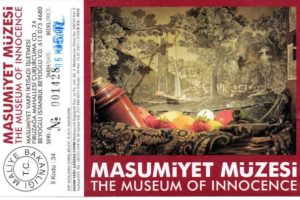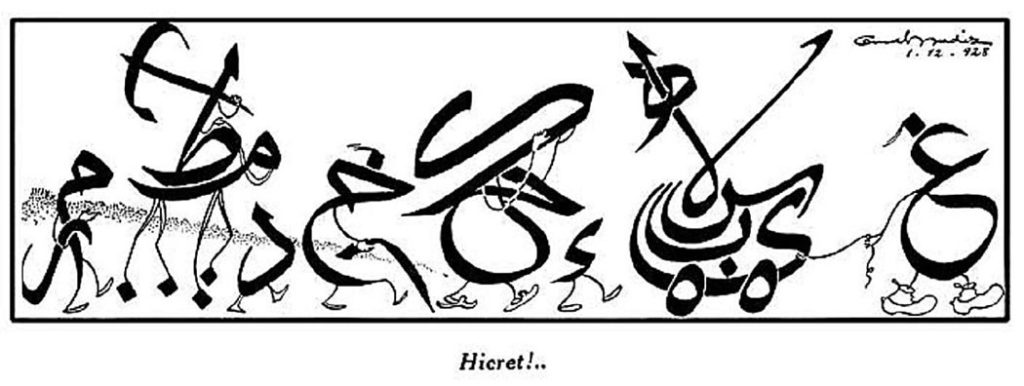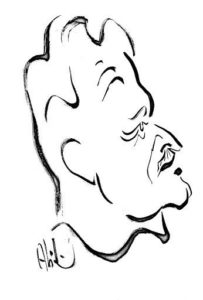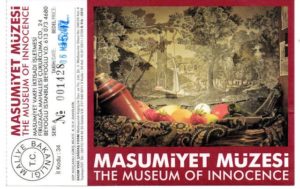“What is in a preposition?”: Reading Turkish Literature as World Literature

Review of Burcu Alkan and Çimen Günay-Erkol, eds. Turkish Literature as World Literature. NY: Bloomsbury Academic, 2021.
Mehtap Ozdemir, 22 July 2021, published in The Medium
Conventionally traced back to Goethe’s conceptualization of the term Weltliteratur in the early decades of the nineteenth century, world literature has gained traction both as a critical construct and an academic field in the past few decades. Simply put, world literature is a mode of international literary exchange and detached reading that pits a cosmopolitan and multilingual literary common/canon against nation-based paradigms. Even though it remains controversial because of its reliance on universalism and translatability, world literature has nevertheless appealed to scholars invested in questions of translation, canonization, and political imaginary on a global scale.
One recent example of this wide scholarly interest in the concept is Bloomsbury Academic’s series “Literatures as World Literature” which approaches world literature through different constellations of texts. It includes volumes not only on national literatures (German, Bulgarian and Mexican literatures among others) but also on literary genres/modes (Crime Fiction and Surrealism) and specific authors (Roberto Bolaño and Elena Ferrante). The purpose of the series is to expand the extent of critical work on world literature by using it as an analytical framework to speak about a diverse set of texts and contexts. Coming out of the series this year, Turkish Literature as World Literature (eds. Burcu Alkan and Çimen Günay-Erkol) questions what it means to read a national literature as world literature, taking issue with the main tension between cosmopolitan sensibilities and national canons that are enfolded into the concept.
The central premise of the volume is the theorization of world literature as a global market where texts circulate in translation and form a multilingual canon. As Burcu Alkan and Çimen Günay-Erkol emphasize, while world literature depends on translation-publication networks which grant accessibility and visibility to national literature, it also wields institutional power in conditioning scholarly circulation through prizes and syllabi. Insofar as the appeal of world literature lies in its power as representation and recognition, determining who and what is included in the world of literature, it not only defines a quality (worldliness) but also gains normative force in making up literary worlds. Against a narrative of peripheralization that exoticizes Turkish literature on the global stage, the volume seriously engages with the normative dimensions of world literature by attending to “the production processes of literature” including market dynamics and geopolitical factors and tracing how and why Turkish literature “make[s] it through the gateway of the world literary sphere.” To counter the center-periphery model whereby literature disseminates from a European center, the volume traces how Turkish literature “influenced the literatures of the world,” an objective compromised, as the editors acknowledge, by the preponderance of chapters that focus on “works that have been translated into major European languages.”
Titled “Breathing Turkish in the World Stage,” the first part is intended to “provide a basis for readers unfamiliar with the history of late Ottoman-early Republican literature” even though the chapters move beyond this both temporally and objectively. Fatih Altuğ’s chapter offers a historicized survey of influential names, significant works, and changing discourses on the universality and nationality of literature in Ottoman languages from the 1860s onward. Apart from portraying Istanbul as “the [cosmopolitan] locus of negotiation” between European and non-European literatures, the article shows the idea of “national literature” to be a politically motivated social construct.

Cemal Nadir’s caricature of the 1928 Alphabet Reform via Lambiek.net.
In the second chapter, approaching world lite
In the second chapter, approaching world literature from the perspective of the late Ottoman “scriptural ecosystem” where literary communities share, traffic, or change scripts, Etienne E. Charrière advances scripts as palimpsestic sites where not only different writing/translating practices but also historical layers converge as in the contemporary work of Turkish-Cypriot author Mehmet Yaşın. The first part ends with Joseph Twist’s chapter on Turkish-German writer Zafer Şenocak’s translation of Yunus Emre’s poetry which examines Şenocak’s translational objectives and strategies to challenge Orientalist assumptions about Islam and Turkish culture. By tracing how Şenocak recodes Yunus Emre’s mystical poetry in the language of a self-critical Enlightenment, Twist’s chapter reveals the limits of world literature as a mode of secularized reading.
Part II, “Turkish Literature in Translational Waters,” substantiates the volume’s investment in border-crossing and interlingual exchange in five chapters that explore the dialogue of Turkish literature with its European (Britain) and non-European (the Soviet Union, India, Greece, and the Arab world) interlocutors. While Peter Cherry analyzes how the travel writings of Grace Ellison and Zeyneb Hanım negotiate national identities and gender practices while partaking in reproducing global hierarchies, Anirudha Dhanawade and Şima İmşir find literary alliances and political affinities between independent Turkey and colonial India in the appeal of Halide Edib for Indian readers.

Nazim Hikmet via artsandculture
The next three complementary chapters pursue the convergence of literary and political solidarity by focusing on Nazım Hikmet as part of a translingual and politically engaged world of poetry. While Mediha Göbenli offers a survey of Hikmet’s global reception, Kenan Behzat Sharpe and Mehmet Hakkı Suçin focus respectively on Hikmet’s reception in Greece and his influence on Arab poets. In invoking a large geography of international literary-political affiliations through Nazım Hikmet, these chapters not only complicate the political horizon of world literature which includes the struggles of decolonization and socialist movements but also insert friendship and solidarity into the dynamics of world literature.
Part III, “Contemporary Forms and Cosmopolitanism,” brings together four chapters that collectively investigate the role of translation in literary commodification and institutionalization. Başak Çandar analyzes the spatial politics of Orhan Pamuk and Juan Goytisolo in decentering “the national” as a point of departure in textual circulation and questions interpretative inequalities that reduce Pamuk, but not Goytisolo, to a metaphor of the nation in global literary networks. Irmak Ertuna Howison broaches the subject of representational politics from a pedagogical perspective and discusses her methodology of teaching Orhan Pamuk’s Museum of Innocence by organizing her lecture around the metaphor of museum in order to make the novel relatable to students and not compromise on its cultural specificity.
 In the next chapter, Simla Doğangün discusses Elif Şafak’s novels at the intersection of commodification and identity politics to point out how cultural hybridity and cosmopolitanism can be co-opted by the discourse of globalization. The last part closes with Kaitlin Staudt’s chapter which explores the role of literary prizes in expressing competing claims to cultural capital and institutional power as well as negotiating state and identity politics within and outside of the nation. Collectively, these chapters call attention to the complex dynamics between world literature, globalization, and identity politics, which can sublate cosmopolitan sensibilities in the creation of national exceptionalism and global homogeneity.
In the next chapter, Simla Doğangün discusses Elif Şafak’s novels at the intersection of commodification and identity politics to point out how cultural hybridity and cosmopolitanism can be co-opted by the discourse of globalization. The last part closes with Kaitlin Staudt’s chapter which explores the role of literary prizes in expressing competing claims to cultural capital and institutional power as well as negotiating state and identity politics within and outside of the nation. Collectively, these chapters call attention to the complex dynamics between world literature, globalization, and identity politics, which can sublate cosmopolitan sensibilities in the creation of national exceptionalism and global homogeneity.
In bringing together a diverse set of texts, approaches, and issues around the central tension between cosmopolitanism and nationalism, Turkish Literature as World Literature will engage scholars well-versed in Ottoman and Turkish literatures as well as readers interested in the role and politics of translation in shaping comparative literary studies and the contemporary global world. While there is still controversy around whether to define literature in ethnic or linguistic terms in Turkey, this volume urges us to look deeper into the history of the emergence of literature as a modern concept in the first place.
Published at https://medium.com/global-literary-theory/what-is-in-a-preposition-9faaf44b44bf